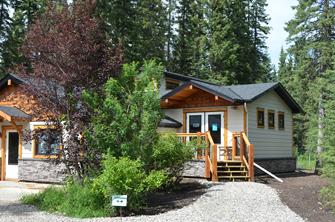ADHD AND NATURAL REMEDIES
DO THEY WORK?
I get asked a lot on how to augment ADHD treatment. There’s no way to predict in advance if a person will be helped by any one particular approach, even medication. It is critical to monitor the person’s symptoms closely in order to know what works well or not (including setbacks and side effects). Most of all, be open to a variety of changes in nutrition, exercise, sleep habits and lifestyle.
I KEEP MY SYMPTOMS IN CHECK BY….
Implementing a multi-modal treatment plan is the key to managing your ADHD. Different strokes for different folks. Some prefer behavioral therapy or coaching, cognitive behavioral therapy (CBT) and/ or parent training. Others simply watch what they eat or when they exercise, and how it makes them feel. A friend in the same boat can be invaluable to help keep you on track. Many reduce their exposure to EMF, try acupuncture or alternatives like CBD oil. For the latter, keep in mind that there are limited studies available showing different results.
SUPPLEMENTS AND VITAMINS TO BOOST YOUR ADHD BRAIN
Omega 3 fatty acids, zinc, iron, protein, low sugar foods and a host of homeopathic remedies, etc. A diet that is rich with a broad spectrum of micro nutrition can be a powerful tool for managing ADHD symptoms. According to Richard Wurtman, protein triggers neurotransmitters responsible for inducing alertness, while carbohydrates trigger drowsiness. It also prevents surges in blood sugar that may increase hyperactivity. It’s not called ‘comfort food’ for nothing. Plant-based and high fiber foods such as fruit, vegetables, whole grains and legumes help stabilize energy levels. If you take medication, a low- fat breakfast (or home-made smoothie) will maximize its effectiveness. Fats can cause the body to absorb the medication more slowly, thus delaying efficacy.
RESTORATIVE SLEEP
It is thought that people with ADHD might spend less time in the REM cycle of sleep. This is the long, deep sleep that leaves you feeling rested. Practicing good sleep hygiene, starting with a consistent bedtime routine could prevent ADHD symptoms from getting worse the next day.
EXERCISE
Short-term aerobics, including yoga has positive effects by decreasing your cortisol levels (‘stress’ hormone), increasing endorphins (‘feel good’ hormone), dopamine, serotonin and norepinephrine. Climbing stairs or walking 30-minutes four times a week will also do the trick. Green time outside will help you recover from attention fatigue. Consider simply 20 minutes in the backyard or any green open space, gardening, walking the dog, biking to school or to work.
MINDFULNESS
This is an attention-awareness technique that reduces stress, develops positive emotions and strengthens self-regulation skills. The idea is to become more aware of everyday activities and to stay in the moment as much as possible. For example, check in with your biodata like breathing. Just focus on the sound of it while walking instead of whether it’s ‘normal’.
HOMEOPATHY
Yes, it has its critics but many believe this 200 year old practice helps relieve symptoms of hyperactivity, inattention and anxiety. Consult a homeopath and ask for clinical studies to support the efficacy of recommended treatments.
Sources:
Wurtman, Richard. Nutrients that modify brain function. Scientific American, vol. 246, no.4,1982, p50-59.
Mitchell, J. T., Zylowska, L., & Kollins, S. H. (2015). Mindfulness Meditation Training for Adult ADHD: Current Empirical Support, Treatment Overview,
Please note that due to a server issue my email has had to change to rocheherbst1@ gmail.com I appreciate your patience on this matter.


























